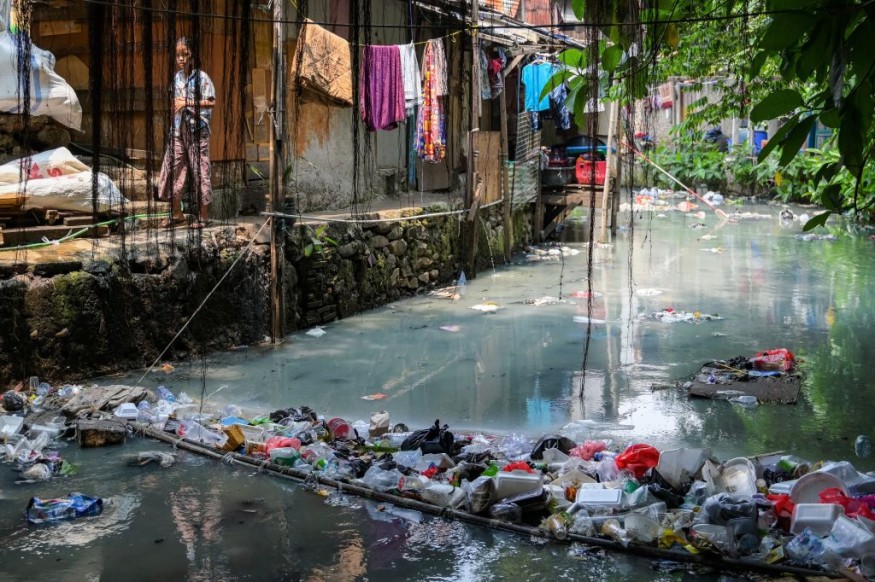Plastic pollution has long been a global environmental concern, but a new study conducted in the United Kingdom found that plastic litter in rivers may facilitate the spread of hazardous pathogens downstream, posing major public health implications.
Dangerous Pathogens
The study, which focused on the River Sowe in Warwickshire and the West Midlands of England, highlighted the potential dangers of plastic pollution in our freshwater ecosystems.
It revealed that thrown plastic, wooden sticks, and the water itself were breeding grounds for colonies of microorganisms, potentially creating a reservoir for bacteria and viruses known to cause human diseases and antibiotic resistance.

"Our findings indicate that plastics in freshwater bodies may contribute to the transport of potential pathogens and antibiotic resistance genes," said lead author Vinko Zadjelovic of the University of Antofagasta in Chile.
He added that this could have an indirect but significant implication for human health.
Pseudomonas aeruginosa, Acinetobacter, and Aeromonas-bacteria known as 'opportunistic' that pose a greater risk to individuals with compromised immune systems-were found in plastic and wood samples, while water samples contained the potential human pathogens Escherichia coli, Salmonella, Klebsiella, and Streptococcus.
Similarly, the scientists discovered that, while antimicrobial resistance genes were found in bacteria extracted from all samples, the types of antimicrobials to which these genes imparted resistance differed between plastic and wood samples and water samples.
The authors discovered that P. aeruginosa was especially numerous on degraded plastic samples when they examined the microbial communities growing on new and degraded plastics.
They hypothesize that this is due to deteriorated plastics generating more organic chemicals that promote microbial growth than fresh plastics.
They also discovered that the relative abundance of antimicrobial resistance genes in microbial communities from degraded plastic samples was higher than in those from new plastic samples, albeit the reasons for this remain unknown.
Implications To Public Health
Each year, at least 2.8 million antimicrobial-resistant infections occur in the United States, costing more than 35,000 lives, according to the Centers for Disease Control and Prevention (CDC).
The World Health Organization (WHO) reported that unless new antibiotics are discovered, these illnesses will kill up to 10 million people each year by 2050.
Pathogens such as Salmonella, Escherichia coli (E. coli), and Streptococcus were found in water samples obtained from the River Sowe in February 2020, which can cause a variety of ailments, including strep throat.
What's more, the plastic and wooden debris in the river attract "opportunistic" bacteria like Pseudomonas aeruginosa and Aeromonas, which can harm those with compromised immune systems.
Pseudomonas aeruginosa was more prevalent on "weathered plastic" than on wood. Furthermore, the genes that cause antibiotic resistance were more numerous on this worn plastic.
This study comes at a time when British water corporations have come under fire for dumping raw sewage into the UK's rivers and failing to report pollution events.
Rivers are the principal route for plastic garbage to enter the world's seas, contributing significant amounts of plastic annually ranging from 3.5 thousand to 2.41 million metric tons.
The study's findings highlight the critical need to combat plastic pollution in our rivers and freshwater bodies, since it not only hurts the ecosystem but also poses a substantial risk to human health.
Related Article : How Plastic Recycling May Be Contributing to Microplastic Pollution
© 2025 NatureWorldNews.com All rights reserved. Do not reproduce without permission.





